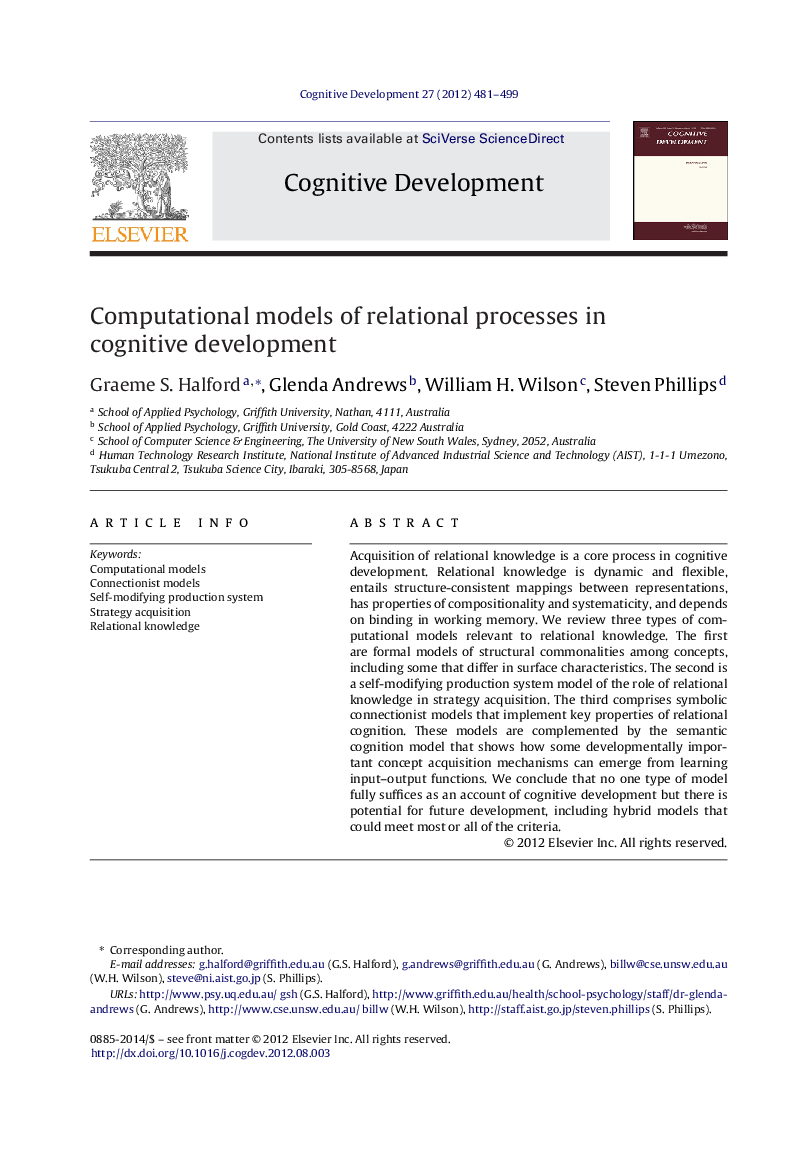| Article ID | Journal | Published Year | Pages | File Type |
|---|---|---|---|---|
| 916519 | Cognitive Development | 2012 | 19 Pages |
Acquisition of relational knowledge is a core process in cognitive development. Relational knowledge is dynamic and flexible, entails structure-consistent mappings between representations, has properties of compositionality and systematicity, and depends on binding in working memory. We review three types of computational models relevant to relational knowledge. The first are formal models of structural commonalities among concepts, including some that differ in surface characteristics. The second is a self-modifying production system model of the role of relational knowledge in strategy acquisition. The third comprises symbolic connectionist models that implement key properties of relational cognition. These models are complemented by the semantic cognition model that shows how some developmentally important concept acquisition mechanisms can emerge from learning input–output functions. We conclude that no one type of model fully suffices as an account of cognitive development but there is potential for future development, including hybrid models that could meet most or all of the criteria.
► Relational knowledge is the core of higher cognition. ► There are structural commonalities among concepts. ► Symbolic connectionist models implement key properties of relational cognition.
